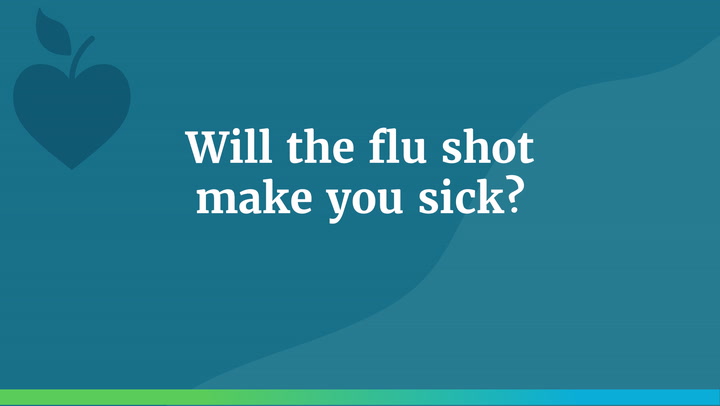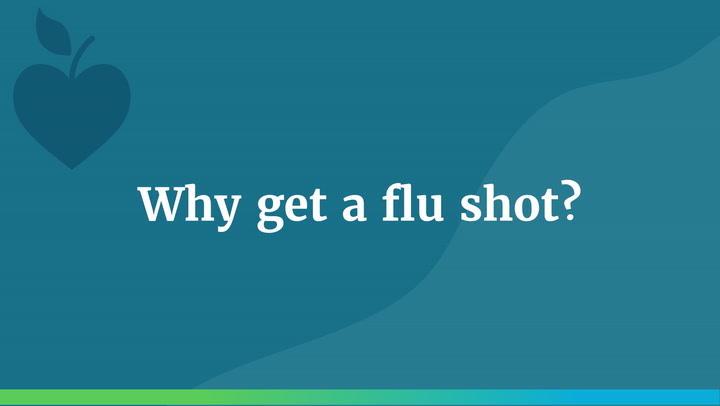Flu Vaccines: What You Need to Know

Even if the flu (also called influenza) doesn’t result in serious complications, it can mean days of feeling miserable, missing work or school, and canceling plans.
The best way to avoid the flu or prevent serious flu illness is to get an annual flu vaccine.
What Is the Flu Vaccine?
There are two main forms of flu vaccine: shots and a nasal spray. Both train the immune system to recognize and fight off influenza should there be a later exposure.
Because flu viruses change quickly, the vaccine is updated every season to target the strains expected to circulate.
Flu Shot Uses inactivated (killed) influenza viruses or pieces of the virus, such as proteins found on its surface. Approved for everyone 6 months and older, with a few rare exceptions.
Who Should Get the Flu Vaccine?
Recommendations for the 2025–2026 flu vaccine are the same as in previous years: Everyone 6 months old and up, with rare exceptions, should get the annual vaccine.
Vaccination is especially important for certain vulnerable groups:
- HIV or AIDS
- Some cancers such as leukemia
- Cancer treatment, including chemotherapy and radiation
- Chronic conditions that require chronic corticosteroids or other drugs that suppress the immune system.
Who Shouldn’t Get the Flu Vaccine?
- Children younger than 6 months
- People who have life-threatening allergies to the flu vaccine or any of its components, including gelatin or antibiotics (extreme allergic reactions to flu vaccines are very rare)
- Some people who have had a rare nerve disorder called Guillain-Barré syndrome (GBS)
Will the Flu Shot Make You Sick?
When Is the Best Time to Get a Flu Vaccine?
In general, experts recommend getting the flu shot in September or October. This allows for the strongest immunity against the virus when it’s typically at its peak, in December and January, and when exposure risk is highest due to holiday travel and gatherings.
But convenience and opportunity also matter. For some people, trying to optimize timing may inadvertently result in not getting the vaccine at all.
How Well Do Flu Vaccines Work?
There are a number of reasons why flu vaccines don’t guarantee you won’t come down with the flu. Flu viruses are constantly changing (mutating), making it possible for them to evade vaccine protections. Sometimes the strains selected for the seasonal flu vaccine are a poor match to the circulating strains.
Flu Vaccine Types for Children, Adults 18-Plus, Seniors
Flu Shots
Ages 6 months and up:
- Standard-Dose Shot Made with a virus grown in chicken eggs.
- Cell-Based Shot Egg-free vaccines containing viruses grown in a culture made from mammal cells.
Ages 18 and up:
- Recombinant Shot Synthetically created, egg-free vaccines.
Ages 65 and up:
- High-Dose Shot Contains a bigger dose of antigen (an immunity-stimulating substance) to help create a stronger immune response.
- Shot Made With an Adjuvant Contains an ingredient called an adjuvant that helps create a stronger immune response.
Nasal Flu Vaccine
The nasal spray flu vaccine is approved for people ages 2 through 49, except for those with certain conditions. You can get this vaccine at the doctor’s office, healthcare clinic, or pharmacy, or you can purchase it online to administer yourself — no prescription needed.
- Those who’ve had a severe allergic reaction to a flu vaccine in the past
- Pregnant people
- Young people who take aspirin or a salicylate-containing medicine
- People with weakened immune systems and those who are caregivers or close contacts of them
- Children between ages 2 and 4 years old diagnosed with asthma or wheezing in the past 12 months
- People who recently took antiviral medicine for the flu
- People with a cerebrospinal fluid leak or the potential for a leak, as with a cochlear implant
What Are Side Effects of the Flu Vaccine?
The most common side effect of a flu shot is soreness, skin color changes, or swelling at the injection site.
- Low-grade fever
- Headache
- Achiness
- Fatigue
- Nausea
- Fever in children 2 to 6 years old
- Runny nose and nasal congestion in people 2 through 49 years old
- Sore throat in adults
Possible Complications of the Flu Vaccine
Flu vaccines can cause rare complications, such as:
Infectious disease experts recommend weighing these risks against those posed by the flu.
What About Flu Vaccines Containing Thimerosal?
Although most infectious disease specialists agree that thimerosal, a vaccine preservative, poses no health risk and has a strong safety record, the CDC’s Advisory Committee on Immunization Practices voted against recommending flu shots containing this ingredient for the 2025–2026 season.
Some members of the committee had previously voiced concerns about a link between thimerosal and autism; numerous studies have failed to find evidence for such a connection.
Can the Flu Vaccine Give You the Flu?
There are a few reasons why someone might feel like they’ve gotten sick because of getting vaccinated:
Vaccine Side Effects Some people have muscle aches and a fever for a day or two after receiving a flu vaccine. This may be a side effect of your body’s production of protective antibodies.
The Two-Week Window It takes about two weeks for the flu shot to take full effect, and so if you’re exposed to the influenza virus shortly before or during that time period, you might catch the flu.
Can You Get a Flu and COVID-19 Vaccine at the Same Time?
In previous years, the CDC agreed it was safe and effective for people to get more than one vaccine at the same time.
But guidance under Health and Human Services Secretary Robert F. Kennedy Jr. appears to be changing. In a September 2025 memo, Vinay Prasad, MD, the top vaccine regulator for the U.S. Food and Drug Administration (FDA), wrote that officials “cannot affirm” the safety and efficacy of coadministering vaccines for COVID-19, flu, and other conditions, such as respiratory syncytial virus (RSV).
If you want to get multiple shots in one visit, talk to your doctor or pharmacist.
Where to Get a Flu Vaccine Near You
It’s perfectly safe to get your flu shot at your local pharmacy or grocery store as well as at a doctor’s office, health or community clinic, or urgent care center.
Flu Vaccine Cost and Insurance Coverage
Once you locate where you will get your flu vaccine, reach out to the pharmacy or provider’s office to confirm they take your insurance, or you can call your insurance company directly.
Most recommended vaccines, including the flu vaccine, are covered by health insurance. Medicaid, Medicare Part D, and the federal Vaccines for Children program pay for all recommended vaccines for those who qualify.
The Takeaway
- The flu vaccine significantly reduces the risk of severe illness, making it essential for nearly everyone ages 6 months and older to get immunized annually.
- Getting vaccinated in September or October provides the best protection during peak flu season.
- Various flu vaccine types are available, including high-dose shots for seniors and nasal sprays for people who dislike needles or prefer to immunize themselves at home.
Resources We Trust
- Mayo Clinic: Flu Shot: Your Best Bet for Avoiding Influenza
- Cleveland Clinic: When Is the Best Time to Get Your Flu Shot?
- Yale New Haven Health: Flu Symptoms and When to Get Your Shot
- American Academy of Family Physicians: Flu Myths
- American Medical Association: 8 Things Doctors Wish Patients Knew About Flu Vaccines
- About Estimated Flu Burden. Centers for Disease Control and Prevention. November 13, 2024.
- O’Halloran A et al. Influenza-Associated Hospitalizations During a High Severity Season — Influenza Hospitalization Surveillance Network, United States, 2024–25 Influenza Season. CDC Morbidity and Mortality Weekly Report. September 11, 2025.
- ACIP Recommendations Summary. Centers for Disease Control and Prevention. August 28, 2025.
- Live, Attenuated Influenza Vaccine VIS. Centers for Disease Control and Prevention. February 28, 2025.
- Influenza Virus Vaccine (Intradermal Route, Intramuscular Route). Mayo Clinic. February 1, 2025.
- Flu and People 65 Years and Older. Centers for Disease Control and Prevention. September 5, 2024.
- Flu and Children. Centers for Disease Control and Prevention. September 5, 2024.
- Pregnancy Week by Week: Is It Safe to Get a Flu Shot During Pregnancy? Mayo Clinic. September 19, 2024.
- People at Increased Risk for Flu Complications. Centers for Disease Control and Prevention. September 11, 2024.
- Influenza (Flu): 2025-2026 Flu Season. Centers for Disease Control and Prevention. August 6, 2025.
- When Is the Best Time To Get Your Flu Shot? Cleveland Clinic. August 5, 2025.
- Frutos AM et al. Interim Estimates of 2024–2025 Seasonal Influenza Vaccine Effectiveness — Four Vaccine Effectiveness Networks, United States, October 2024–February 2025. CDC Morbidity and Mortality Weekly Report. February 27, 2025.
- Flu Shot: Your Best Shot for Avoiding Influenza. Mayo Clinic. July 1, 2025.
- Possible Side Effects from Vaccines. Centers for Disease Control and Prevention. July 31, 2024.
- FluMist (Influenza, Vaccine Live, Intranasal), the Nation’s Only Nasal Spray Flu Vaccine, Now Available for Home Delivery. AstraZeneca. August 15, 2025.
- Influenza Virus Vaccine (nasal route). Mayo Clinic. July 1, 2025.
- McNeil MM et al. Risk of Anaphylaxis After Vaccination in Children and Adults. The Journal of Allergy and Clinical Immunology. March 2016.
- Febrile Seizures and Vaccines. Centers for Disease Control and Prevention. December 20, 2024.
- Grohskopf LA et al. Prevention and Control of Seasonal Influenza with Vaccines: Recommendations of the Advisory Committee on Immunization Practices — United States, 2025–26 Influenza Season. CDC Morbidity and Mortality Weekly Report. August 29, 2025.
- Walter EB et al. Safety of Simultaneous vs. Sequential mRNA COVID-19 and Inactivated Influenza Vaccines. JAMA Network Open. November 6, 2024.
- FDA Reverses Course on Co-Administering COVID-19, Flu Shots: 4 Updates. Becker’s Clinical Leadership. September 4, 2025.

Jane Yoon Scott, MD
Medical Reviewer
Jane Yoon Scott, MD, is an infectious disease physician and an assistant professor of medicine at Emory University in Atlanta. Dr. Scott enjoys connecting with her patients, empowering them to understand and take ownership of their health, and encouraging them to ask questions so that they can make informed and thoughtful decisions.
She graduated with the highest honors from the Georgia Institute of Technology, then received her MD from the Medical College of Georgia. She completed her internal medicine residency training and chief residency at Temple University Hospital, as well as a fellowship in infectious diseases at Emory University. She is board-certified in both internal medicine and infectious diseases.
When she is not seeing patients, Dr. Scott works with neighboring health departments to promote public health, especially to communities that have been historically underserved. She also teaches medical trainees and lectures medical students at the Emory University School of Medicine.
In her free time, Dr. Scott appreciates a good coffee shop, weekend hikes, playing guitar, strolling through cities, sampling restaurants, and traveling to new places.

Becky Upham
Author
Becky Upham has worked throughout the health and wellness world for over 25 years. She's been a race director, a team recruiter for the Leukemia and Lymphoma Society, a salesperson for a major pharmaceutical company, a blogger for Moogfest, a communications manager for Mission Health, a fitness instructor, and a health coach.
Upham majored in English at the University of North Carolina and has a master's in English writing from Hollins University.
Upham enjoys teaching cycling classes, running, reading fiction, and making playlists.




